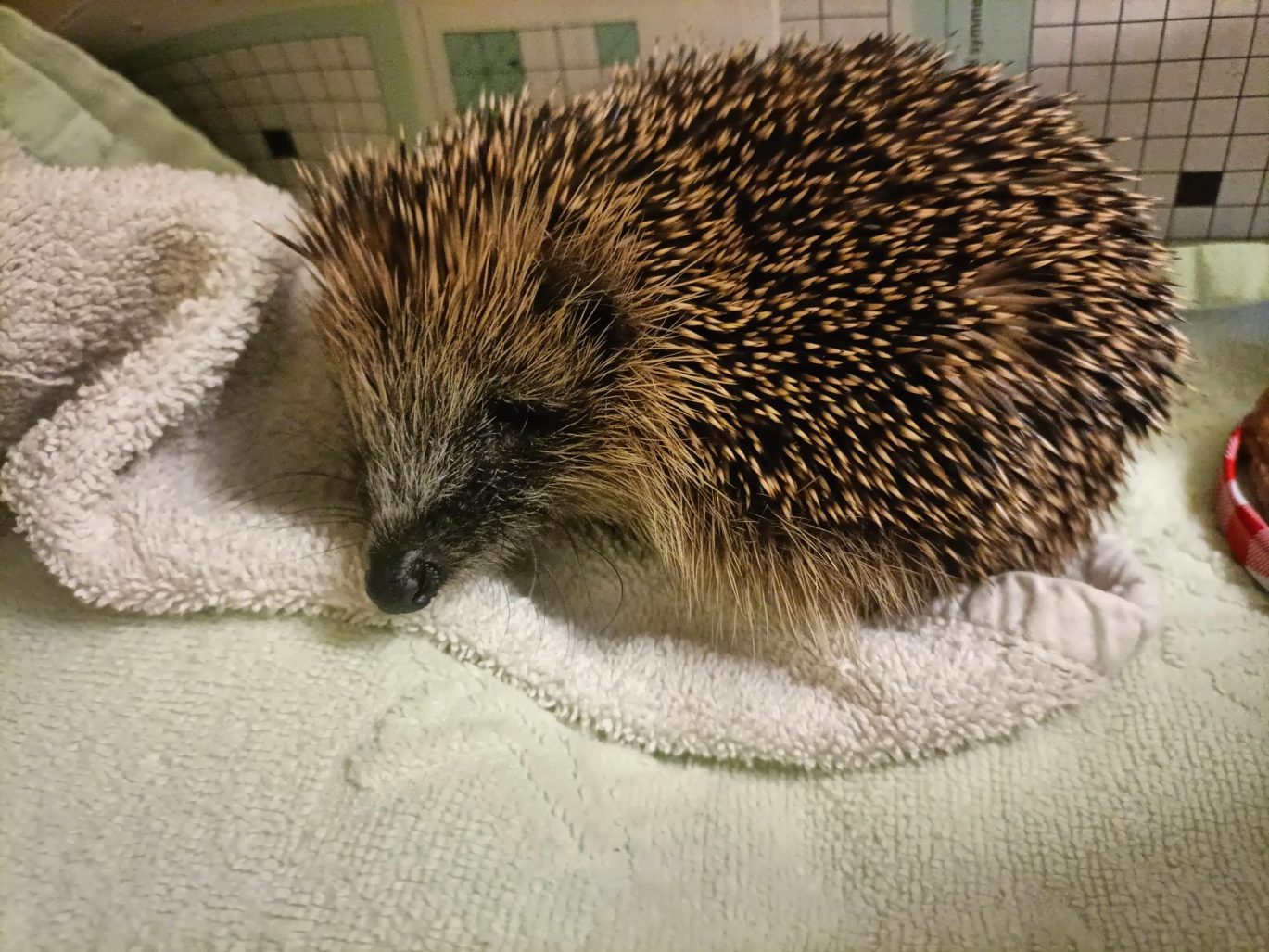This week marks Hedgehog Awareness Week, which is a campaign organised every year by the British Hedgehog Preservation Society.
The week aims to highlight the problems facing our prickly pals, and what we can do to help them.
Our National wildlife centre is currently caring for 28 hedgehogs. Some have been admitted to the centre after being found outside during the day in a poorly condition and dehydrated whilst others have been uplifted due to being tangled in netting, resulting in wounds and swollen joints, which require treatment.
Jenna Lister, Triage assistant at the wildlife centre gives advice on what to do if we think a hedgehog needs help and when to call the Scottish SPCA animal helpline.
Jenna said: “In the coming weeks, you may see females wandering around during the day to find food and nesting materials. Unless the hog is in poor condition or showing signs of sickness, they should be left alone to carry on with these natural behaviours.
“Small hoglets with pink skin and closed eyes and ears should not be out of the nest alone. At four-weeks-old they will begin to leave the nest with their mother to go on foraging trips but they should not be seen out alone before they are fully independent. If they are wandering around, lying lifeless and cold or are making a peeping noise to call for their mother, then they are likely in need of our help. Hoglets are fully independent by eight-weeks of age, weighing around 250 grams and look just like a mini hedgehog with their spikes.”
With less suitable habitats available for hedgehogs, you can make your garden more hedgehog friendly and safe.
Jenna continues: “To help hedgehogs, leave materials in gardens that can be used for nests such as moss or leaves. You can also put out water dishes and cat food to help expecting mothers and juveniles later on in the season. Just make sure you avoid fish-based food.
“Check for signs of hedgehogs before carrying out any work in your garden, to try to prevent disturbing active nests. If nests are disturbed accidentally, please ensure there are no injuries to any young and put the nesting materials back. The mother will still return to the nest.
“Look out for signs of hedgehogs before using any types of netting in your garden, once they feel trapped they will begin to struggle to free themselves, resulting in them becoming tangled deeper within the netting. Use an alternative to netting if you possibly can, this could help to save hedgehogs lives.
“If you are concerned for the welfare of a hedgehog please contact our animal helpline on 03000 999 999.”
Further advice can be found on our website







